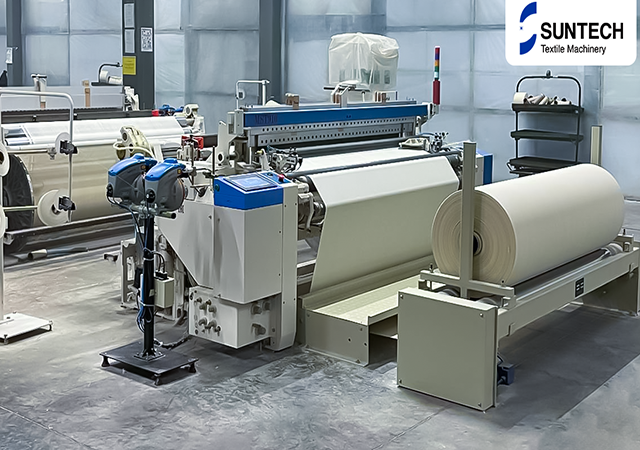Cotton, a versatile and widely used natural fiber, has played a crucial role in shaping the textile industry for centuries. From clothing to household items, cotton stands as a fundamental raw material known for its comfort, durability, and adaptability. Through advanced textile machinery, raw cotton is transformed into everyday products that enhance our lives.
Key Advantages of Cotton
Versatility and Comfort
Cotton's versatility is a major reason for its prominence in textile production. It can be spun into various fabrics suitable for diverse applications. Lightweight and breathable fabrics for summer wear, as well as heavier textiles for winter garments and home furnishings, are all possible with cotton. Its softness and natural comfort make it ideal for clothing items such as t-shirts, dresses, and underwear, ensuring comfort and breathability for the wearer.
Durability and Longevity
Renowned for its durability, cotton is an excellent choice for textile production. Its fibers can withstand regular wear and tear, maintaining their shape and strength over time. This durability ensures a longer lifespan for cotton products, reducing the need for frequent replacements and supporting sustainable consumption patterns.
Breathability and Moisture Absorption
Cotton's ability to breathe and absorb moisture sets it apart from synthetic materials. The structure of cotton fibers allows air to circulate freely, making it perfect for warm weather. Its moisture-absorbing properties wick away perspiration, keeping the wearer dry and comfortable. These characteristics make cotton garments popular worldwide.
Environmental Sustainability
Cotton, being a natural and biodegradable fiber, is an environmentally friendly choice. Unlike synthetic materials derived from petrochemicals, cotton is renewable and does not contribute to non-biodegradable waste. Modern farming practices have reduced water consumption and pesticide usage, promoting sustainable cotton cultivation. The growing demand for organic cotton has further encouraged eco-friendly farming methods, reducing environmental impact.
Socio-economic Importance
Cotton is vital for the socio-economic well-being of many regions. Its cultivation provides livelihoods for millions of farmers, especially in developing countries. The cotton value chain—from cultivation to ginning, spinning, and weaving—creates employment opportunities in both rural and urban areas. By supporting cotton production, the textile industry contributes to economic growth, poverty alleviation, and social development.
Fair Trade and Ethical Practices
The significance of cotton extends beyond its physical properties. With rising awareness of fair trade and ethical practices, the textile industry has embraced sustainable sourcing and responsible production methods. Initiatives such as organic and fair-trade cotton certification ensure fair compensation for farmers, safe working conditions, and adherence to environmental standards. Promoting ethical practices in cotton production aims to create a positive impact on both people and the planet.

Cotton Market Dynamics in the USA
According to the July 2023 World Agriculture Supply and Demand Estimate (WASDE) report by the US Department of Agriculture (USDA), global cotton production for 2023-24 is projected to decline to about 116.84 million bales from 117.97 million bales the previous year. The USDA also anticipates increased global cotton consumption, projected to rise to 116.45 million bales from 109.77 million bales.
In the US, cotton production is expected to increase to 16.50 million bales, up from 14.47 million bales the previous year. US exports are forecasted to rise to 13.75 million bales, compared to 12.90 million bales the previous year.
India's cotton market is expected to see an increase in opening stock to 11.6 million bales from 8.60 million bales, despite a slight decline in production to 25.50 million bales. India's consumption is projected to increase to 24.50 million bales, with exports expected to grow to 2.20 million bales.
In China, production is anticipated to decrease to 27 million bales from 30.70 million bales, while imports are expected to jump to 9.75 million bales. China's cotton consumption may rise to 37 million bales, up from 36.50 million bales.
Conclusion
Cotton's significance in the textile industry is undeniable. Its versatility, comfort, durability, breathability, and environmental sustainability make it a preferred choice for fabric manufacturing. Cotton's socio-economic importance and the industry's commitment to ethical practices further highlight its critical role. As the textile industry evolves, embracing sustainability and responsibility, cotton will remain a key raw material, balancing quality, comfort, and environmental stewardship.
SUNTECH Textile Machinery offers a comprehensive range of products that cater to various fabric types. Our product lineup includes, but is not limited to fabric cutting machine, motorized beam trolleys, beam storage, and fabric inspection machine. With our innovative approach and extensive experience, SUNTECH Textile Machinery remains at the forefront of the textile industry.




